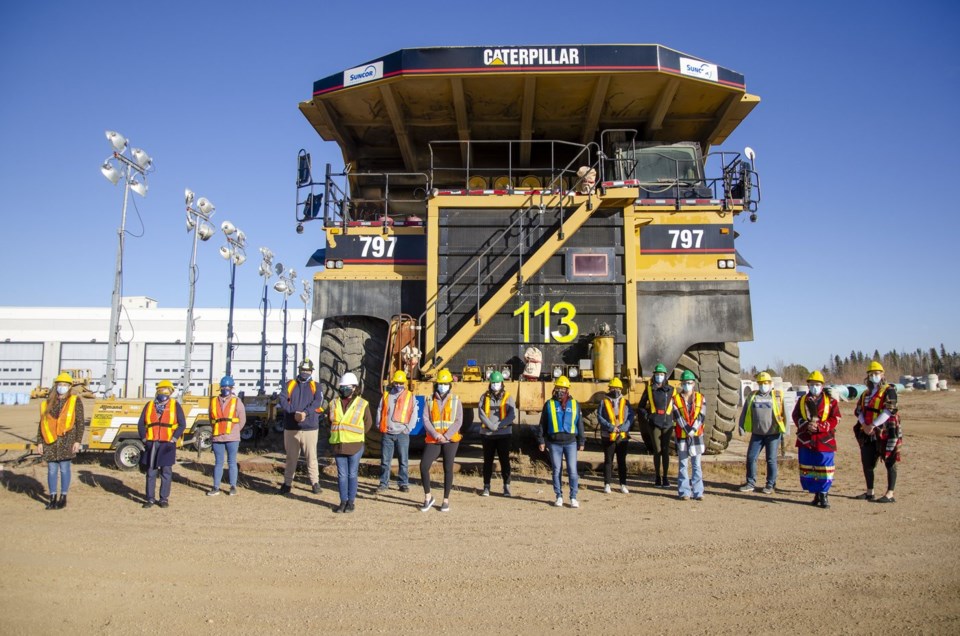When Roberta Cortez moved to Fort McMurray 11 years ago, she had a dream of becoming a heavy haul truck driver. More than a decade later a training program run by the Athabasca Tribal Council (ATC) and Keyano College helped Cortez, who was working as a line cook until recently, realize her dream last month.
“Going into this field as a career choice for myself was about not just my future as I get older, but the future of my daughter,” she told media at an Oct. 21 graduation ceremony at Keyano College’s industrial campus in Gregoire. “She has many dreams and aspirations as well, and I’m hoping a job like this can help me as her mom builds her future.”
Cortez and 10 other people were part of the Indigenous Haul Truck Program, a six-week training course for First Nation, Métis and Inuit adults in the Fort McMurray Wood Buffalo area. Graduates are guaranteed a paid work placement with Syncrude, Suncor, Fort McKay Group of Companies or Tuccaro.
Brittany Kozak, the ATC’s training lead, said all of the program’s students graduated. Nine graduates were women, which she said is rare for these types of training programs. Keyano has seen plenty of Indigenous graduates from its haul truck programs. But, Kozak said this program is unique because it was designed in partnership with the ATC and the leaders of First Nation and Métis communities.
“It just really felt like a community. Everybody had the same shared experience and everyone understood each other a little bit better,” said Kaitlyn St. Martin, another graduate who enrolled because she was looking for a change of pace from her electrical trade certificate.
Bertha Fairley, dean of continuing education at Keyano College, said there is a big demand for class-one drivers and haul truck and heavy equipment operators in the community.
A labour force study released this past August by Fort McMurray Wood Buffalo Economic Development and Tourism (FMWBEDT) found these positions will still be in high local demand in 2025 . The report’s authors acknowledge the next five years carry political, economic and social uncertainty that could impact the region and their findings, but they did take pandemic recovery into account.
“That demand in the community is growing,” said Fairley. “This helps Indigenous people get into the workforce while filling a need from industry.”
May-Britt Jensen, employment and training director for the ATC, said that demand from industry was an incentive for the organization to partner with the college.
There are other job training programs ATC is pursuing for Indigenous people in Fort McMurray Wood Buffalo. These include Indigenous early learning childcare , a security guard program, and training for class 1, 2, 5 and 7 licenses.
The ATC is also launching the Indigenous Youth Exploration of the Trades program in January. This 11-week program for Indigenous youth between 18 and 29 exposes students to four streams: electrical and instrumentation, millwright and insulator, heavy equipment technician and small engine repair, and boilermaker and welder.
Graduates of the youth program will have safety tickets needed for employment in these trades. The ATC has also partnered with employers for paid training opportunities.



